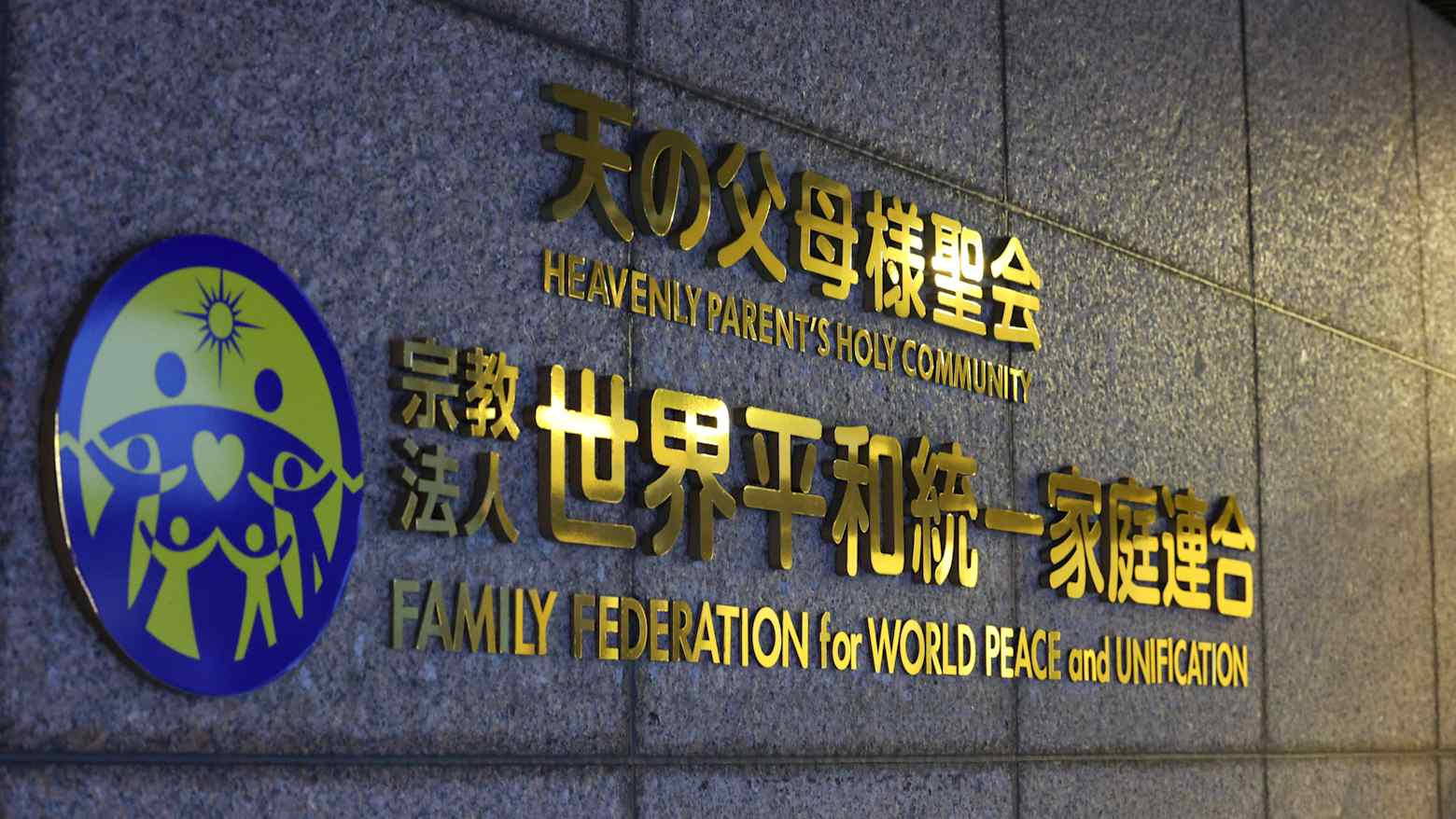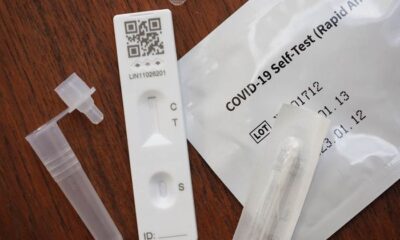News
Doctors, Nurses Rally Together to Support Patients – President, Cancer Society

Dr. Adamu Umar, President of the Nigerian Cancer Society and National Action on Sugar Reduction Coalition, shares insights with LARA ADEJORO on how healthcare professionals are stepping up to help patients amid rising drug prices. Excerpts:
How would you describe the current impact of rising drug prices on patients in the country?
Despite the challenges of rising costs, there’s a heartwarming trend of doctors and nurses coming together to support their patients. The increased cost of living, including essential medicines, is a concern, but healthcare professionals are showing incredible solidarity by contributing their own money to ensure patients receive necessary treatments. This collective effort highlights the resilience and compassion within the medical community. Universal health coverage remains a priority to ensure all Nigerians have access to basic healthcare, and the National Health Insurance Authority is working towards expanding its reach.
Can you provide specific examples that illustrate how patients have been affected by these increases?
An inspiring example is healthcare workers pooling resources to cover the cost of medications. A drug that once cost N2,500 now costs N30,000, and an antimalarial that was N600 is now N2,000. Despite these increases, the medical community’s dedication is unwavering. They are finding ways to support patients, ensuring that even with limited financial means, treatments such as chemotherapy—which now costs N100,000 compared to the previous N60,000—remain accessible. The commitment to helping those with chronic illnesses like diabetes and cancer is truly commendable.
Are there particular patient groups that seem to be disproportionately affected by these cost increases?
While all patients feel the impact of rising costs, the consistent support from healthcare professionals provides a glimmer of hope. The fluctuating foreign exchange and the economic challenges haven’t dampened the spirit of those working in healthcare. Daily interactions with cancer and diabetes patients reveal a community pulling together, striving to meet both nutritional and medical needs. This collective effort ensures that even amidst economic difficulties, patients continue to receive the care they need, demonstrating the profound impact of solidarity and support within the healthcare sector.
News
Japanese Court Upholds Dissolution Order Against Unification Church

A Japanese appeals court has upheld an order to dissolve the controversial Unification Church, rejecting the group’s attempt to overturn a lower court ruling.
The Tokyo High Court on Wednesday denied the church’s appeal, affirming last year’s decision by the Tokyo District Court to disband the organisation following accusations that it manipulated followers into making excessive financial donations.
Japan’s education and culture ministry had argued that the group coerced members into contributing vast sums under the guise of religious devotion. The church maintained that such donations were legitimate religious activities, but the appeals court dismissed that defence.
The Unification Church — often referred to as the “Moonies” — faced heightened scrutiny after the 2022 assassination of former prime minister Shinzo Abe. The gunman, Tetsuya Yamagami, said he targeted Abe due to perceived links between the politician and the church, which he blamed for financially ruining his family. Yamagami, 45, was sentenced to life imprisonment in January and has since appealed.
The dissolution order is unprecedented in Japan for a religious organisation over a civil offence. While it strips the church of its tax-exempt status and requires asset liquidation, it does not prohibit the group from continuing religious activities.
With the appeal rejected, the order is expected to take immediate effect, though the church may still challenge the decision at the Supreme Court.
Founded by the late Sun Myung Moon, who was regarded by followers as a messianic figure, the church has long been controversial. Investigations following Abe’s assassination uncovered ties between the organisation and numerous conservative lawmakers, intensifying public and political scrutiny.
According to the district court’s earlier ruling, the church collected approximately 20.4 billion yen (about $130m) from more than 1,500 individuals.
Chief Cabinet Secretary Minoru Kihara said government agencies have been instructed to work on relief measures for victims, expressing hope that the liquidation process would proceed under court supervision to ensure swift compensation.
News
Mexican drug lord ‘El Mencho’ buried in golden coffin

Infamous Mexican drug lord Nemesio Oseguera Cervantes, widely known as “El Mencho”, has been buried in a gold-coloured coffin during a heavily guarded funeral in western Mexico.
The 59-year-old founder of the Jalisco New Generation Cartel (CJNG) died after being wounded in a firefight between his bodyguards and Mexican special forces deployed to capture him in late February.
Long regarded as Mexico’s most-wanted man, Oseguera was also the subject of a $15m reward offered by the US Department of State for information leading to his arrest.
His death sparked a wave of retaliatory violence across at least 20 Mexican states, with cartel members reportedly setting vehicles ablaze and blockading major roads.
The funeral took place near Guadalajara in Jalisco, a longstanding stronghold of the CJNG. Members of Mexico’s National Guard were deployed in force to deter further unrest during the ceremony.
Large floral arrangements were delivered ahead of the service, including a tribute shaped like a rooster — a nod to Oseguera’s reported passion for cockfighting.
The procession featured a live band playing ranchero music and narcocorridos, a genre known for songs that glorify drug traffickers. Local media reported that the traditional song El Muchacho Alegre was performed as the coffin arrived at a chapel within the cemetery grounds.
After a ceremony lasting about an hour, mourners — many wearing face masks to conceal their identities — followed the casket to the graveside.
News
US Warns of Imminent Iranian Attack on Saudi Oil Hub as Regional Tensions Escalate

The United States embassy in Saudi Arabia has issued an urgent security alert warning of potential imminent missile and drone attacks over the eastern city of Dhahran.
US citizens in the area have been instructed to shelter in place and review emergency security procedures. Dhahran, located on Saudi Arabia’s oil-rich eastern coast, hosts a US consulate and is home to the headquarters of state energy giant Saudi Aramco, making it a strategically sensitive location.
The warning comes as hostilities between the US, Israel and Iran intensify. US President Donald Trump said it was now “too late” for talks with Tehran, reinforcing Washington’s hardening stance amid continued military operations.
Meanwhile, Pakistan confirmed that at least 300 Iranian nationals have crossed into its territory as Israeli and US strikes continue across Iran. The southwestern province of Balochistan, which borders Iran, has long been volatile due to separatist insurgencies and security challenges.
Islamabad faces a delicate balancing act. While relations with Washington have strengthened in recent years — including Pakistan’s nomination of President Trump for a Nobel Peace Prize — domestic dynamics are complex. Although Pakistan is a Sunni-majority nation, it has significant Shia communities, many of whom oppose military action against Iran.
Elsewhere in the Gulf, the media office in Fujairah in the United Arab Emirates reported that debris from an intercepted drone caused a fire. Authorities said the blaze was quickly extinguished and no injuries were reported.
-

 News1 week ago
News1 week agoBritish Tourist Among 19 Victims in Tragic Nepal Bus Crash
-

 News1 week ago
News1 week agoMore than 5,000 flights cancelled as major snow storm blasts US north-east
-

 News1 week ago
News1 week agoTrump’s Global Tariff Rollout Begins at 10% Amid Policy Adjustments
-

 Entertainment1 week ago
Entertainment1 week agoRobert Carradine, dies aged 71
-

 News1 week ago
News1 week agoLouvre Director Steps Down Following Jewel Heist and Security Review
-

 News5 days ago
News5 days agoTram derails in Milan, leaving one dead and dozens injured
-

 Sports1 week ago
Sports1 week agoMan Utd ruled out signing Osimhen ‘because of Afcon’
-

 Sports1 week ago
Sports1 week agoJoshua crash driver case adjourned to March
















